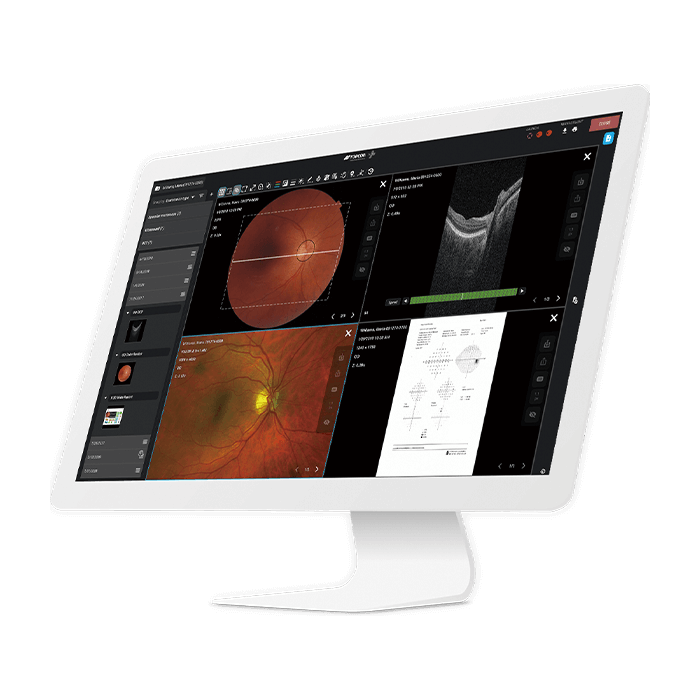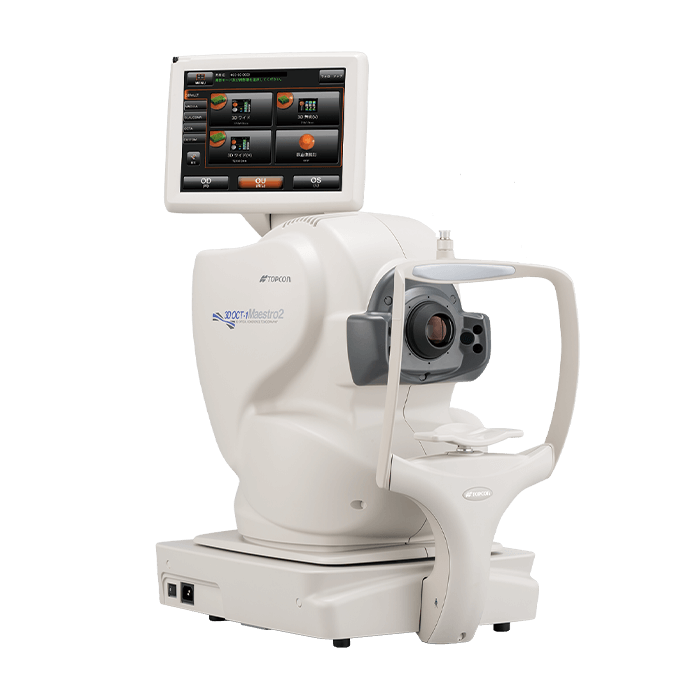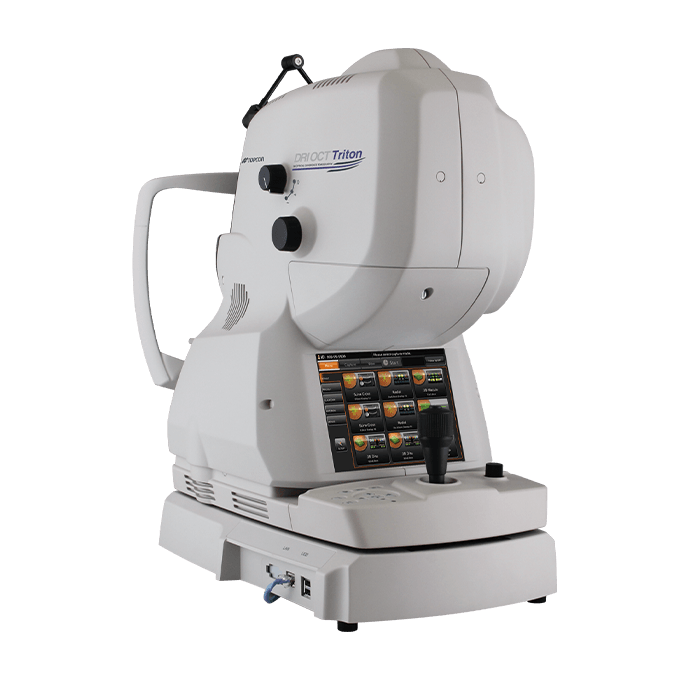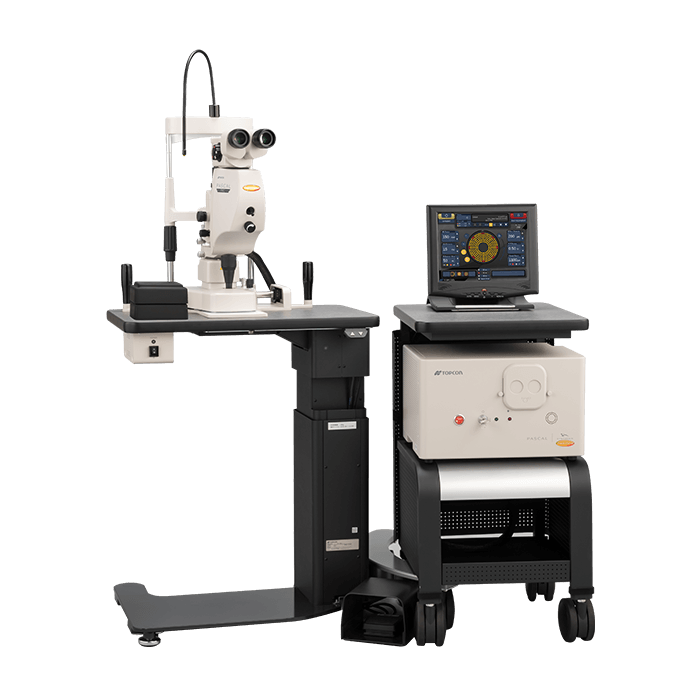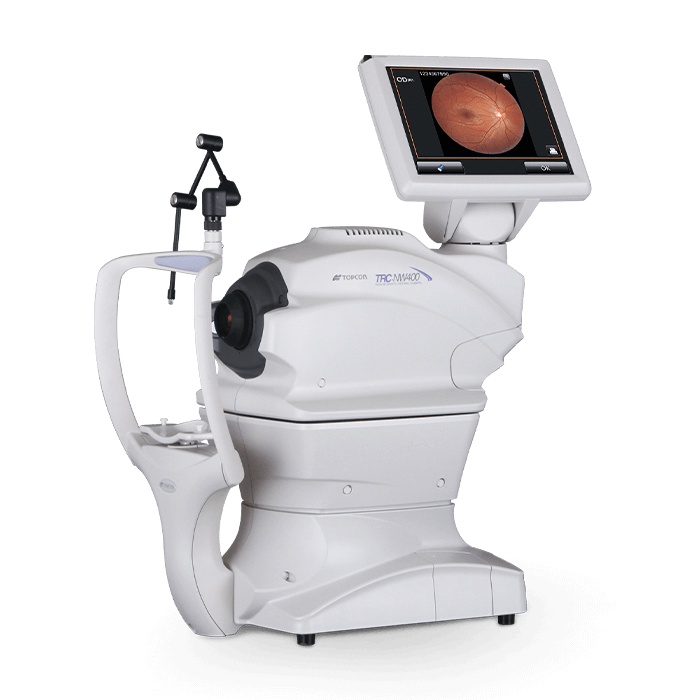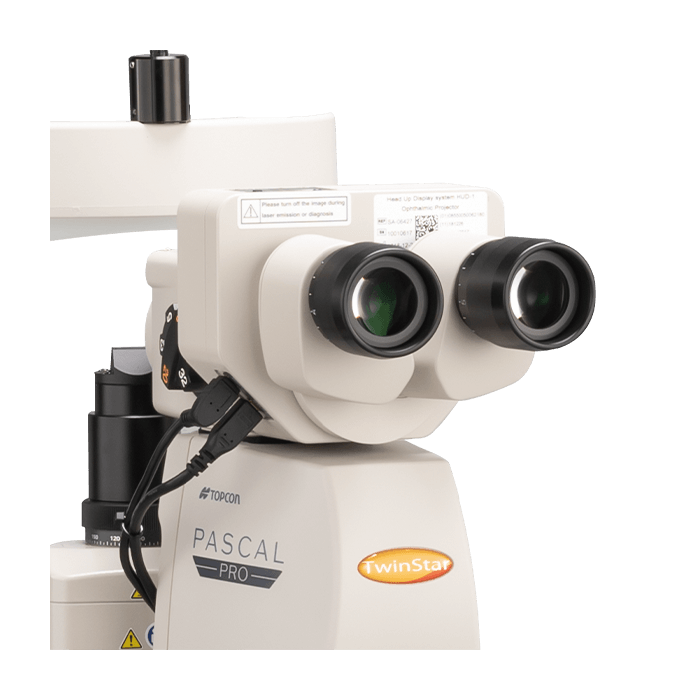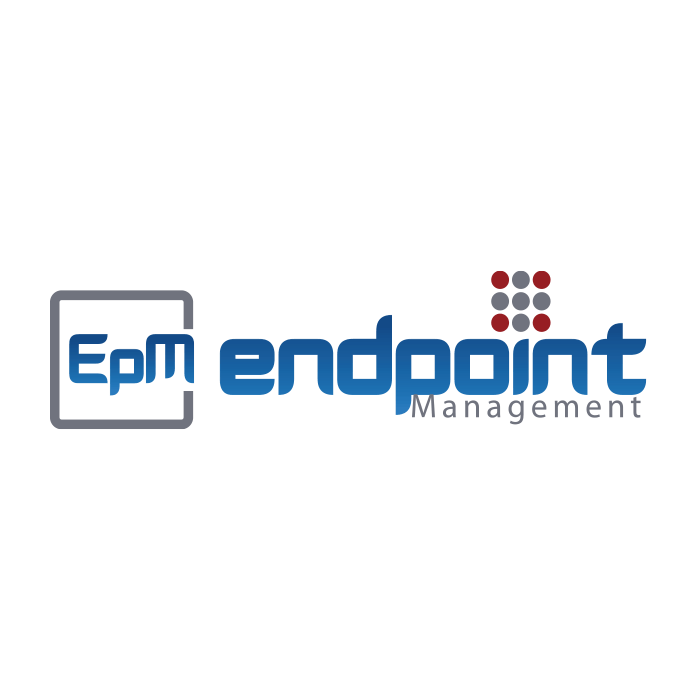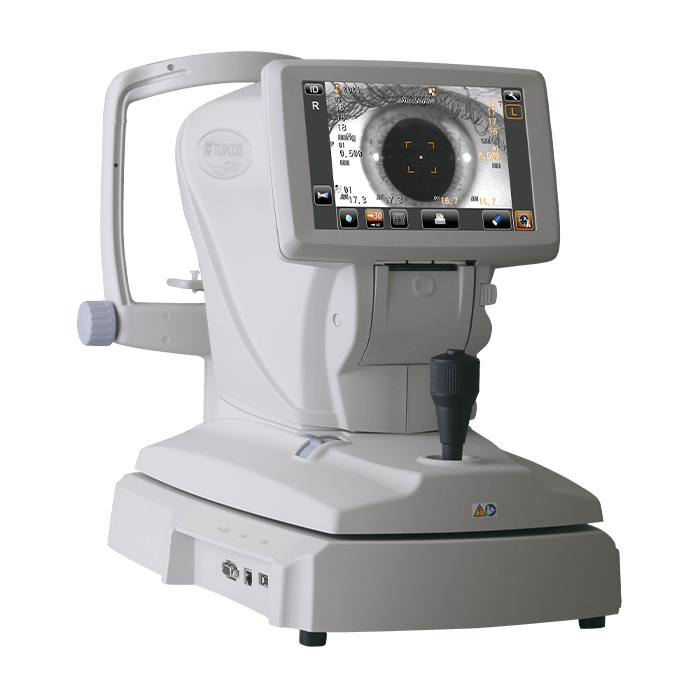- Diagnostics
- Perimeters
Henson 9000
for Practitoners and patients
The Henson 9000 is a compact, easy-to-use perimeter for detecting and monitoring changes to visual fields. It features innovative, time-saving tests and analytical tools that enhance patient experience and practice eciency.Tests can often be extended to include detailed mapping of the central 10 degrees.
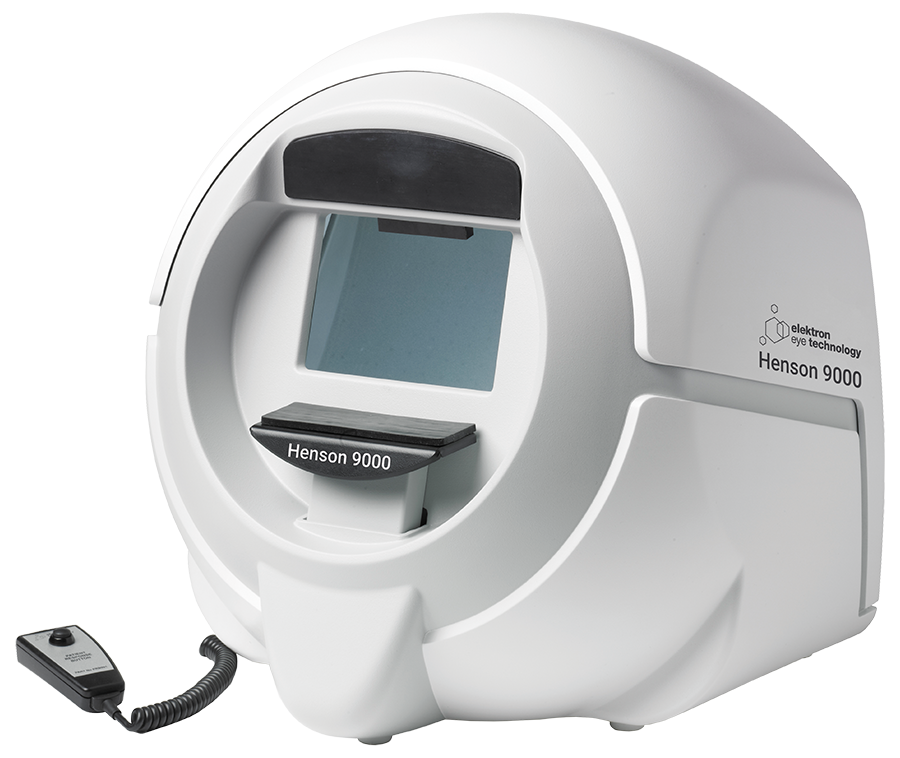
Key Features
- Speed & accuracy
- Improved sensitivity
(to central defects) - Efficiency
- Compact, modern,
low maintenance design - Networking capabilities
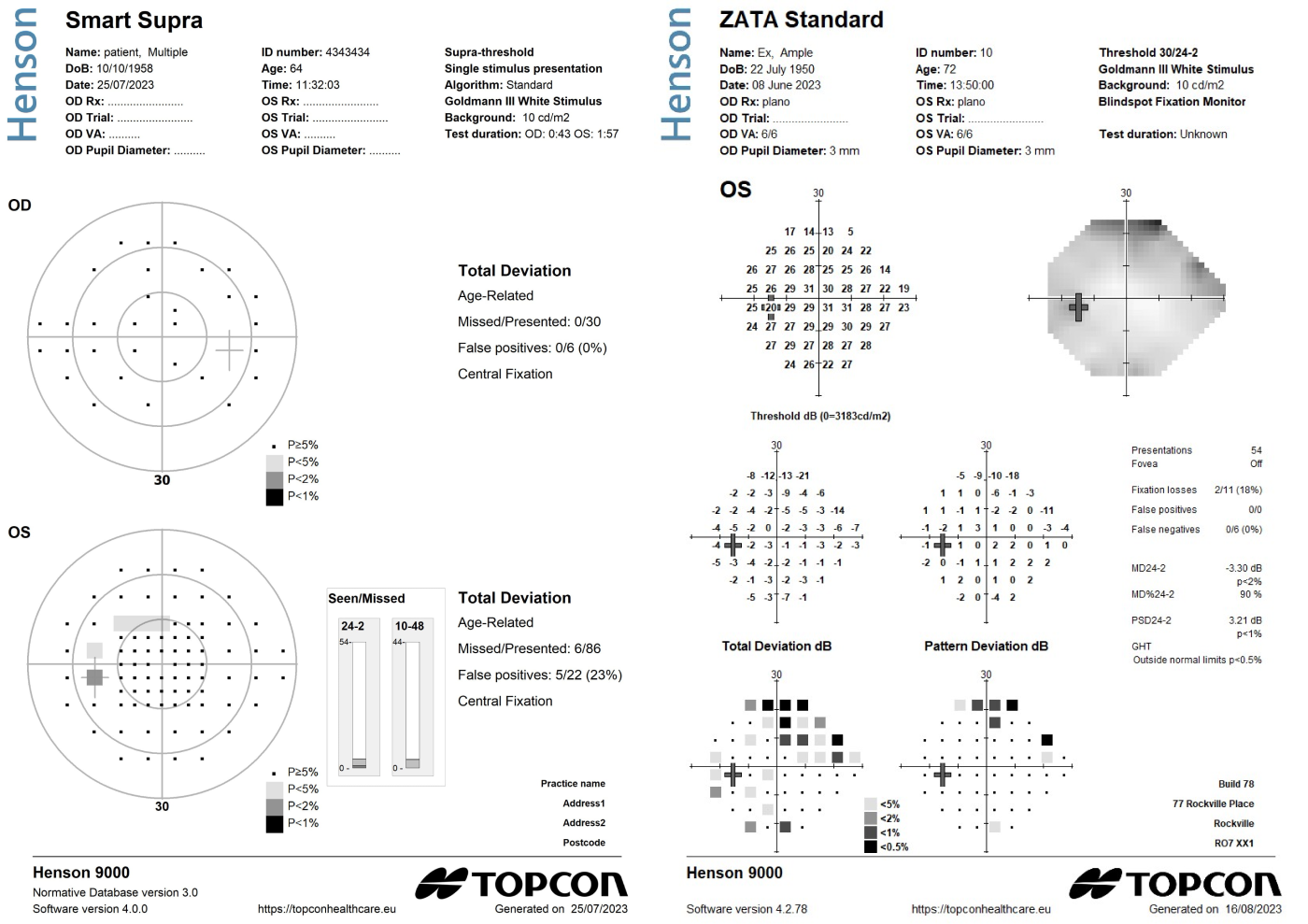
Our alternative to SITA, ZATA can start a threshold test from prior patient data. It uses smart threshold-related terminating criteria to optimize test performance and includes powerful tools for analyzing progression.
Tests (24-2) can be completed in as little as three minutes per eye,** providing clear benefits to perator and patient alike.
* Test times are approximations only and will di er according to patient response time and level of loss.
** In patients with minimal or little visual fi eld loss (MD>-5dB) the mean ZATA Standard test time is 3 minutes.
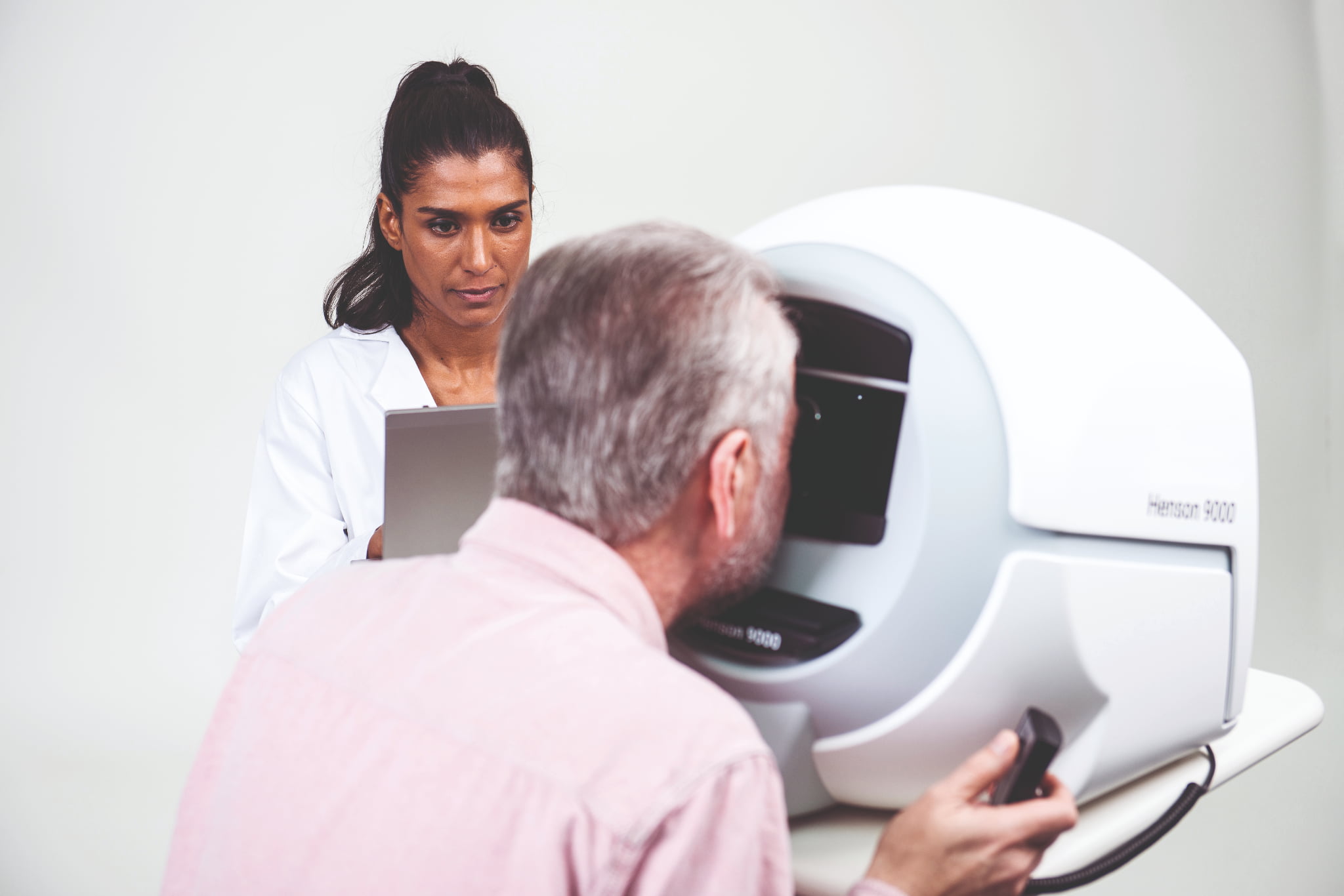
Fast test times increase patient throughput enabling more efficient day-to-day practice management.
The test pattern and probability-based increments increases sensitivity in the previously under-sampled central 10 degrees.
Smart Supra generates globally accepted data.
Printouts include pattern deviation and total deviation probability maps similar to those produced by threshold testing.

In instances where patients have been tested previously, ZATA will build on this prior data for subsequent tests, rather than starting a new test from age normative data as is common in other perimeters. This helps negate false positive responses early in a test by patients with established loss and serves to reduce patient anxiety, too, by reducing the number of unseen presentations. It can also speed up test times – benefiting patients and enhancing practice workflow.
Does not just use single terminating criteria
ZATA varies the terminating criteria to give more accurate thresholds at damaged and neighboring locations. This reduces test times, both for patients with advanced visual field loss and for those
with no loss at all.
Uses looser terminating criteria in severely damaged locations
(<10 dB) ZATA does not attempt an accurate measurement of thresholds below 10 dB where variability is high and attempts at accurate measures do not yield any useful additional data.
Allows both 24-2 and 30-2 stimulus patterns in a single test
Via a simple ‘extend’ facility operators can extend the 24-2 test pattern to a 30-2 test pattern during or at the end of each test so avoiding the need to retest the 24-2 locations if later opting for a 30-2 test.
Uses standard printout for universal compatibility
The standard print format is used to aid interpretation and comparison with data from other perimeters. The Henson 9000 software also allows users to switch between multiple views-threshold, grayscale, or defect values – on screen at the end of each test.
Note: The information contained on this website is intended for healthcare professionals. Not all products, services, or offers are approved or offered in every market, and products vary from one country to another. Contact your local distributor for country-specific information and availability.
